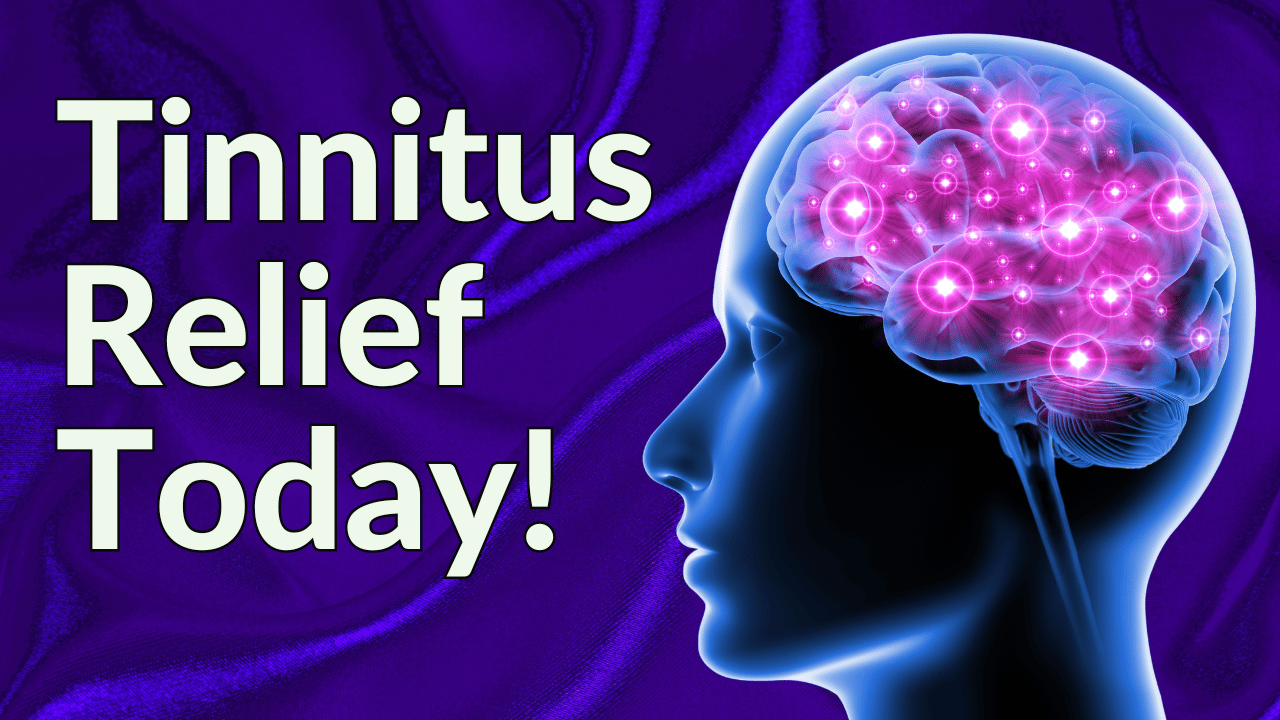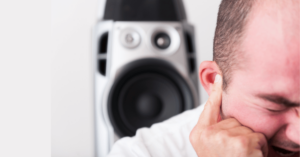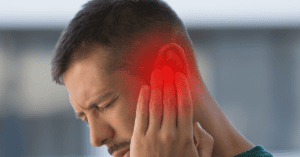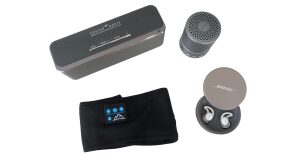Tinnitus is a term that many may have come across, but its specifics might remain elusive to some. As the prevalence of this condition, often described as “ringing in the ears,” increases, so does the public’s awareness and the number of individuals seeking treatment. But how can one determine if they have tinnitus? Is it a condition that can be self-diagnosed? In this article, we will explore the primary symptoms and common causes of tinnitus to better understand this complicated condition. To start, let’s take a closer look at what exactly tinnitus is, and how it relates to the outer, middle and inner ear.
What Is Tinnitus?
Although tinnitus has a fairly simple definition, it can be caused by a host of different conditions, and accompanied by a variety of symptoms and maladies. The way in which it presents itself often differs quite significantly from patient to patient, so it is important to not only have a basic definition of what tinnitus is, but also what the ringing sound may present as, and what can be done to address tinnitus sounds.
Tinnitus Definition And Symptoms
Tinnitus is the term used to describe the sounds of ringing, buzzing, hissing, clicking, or more, without an identifiable external source. Tinnitus can be heard in one or both ears, and the severity of the condition depends on numerous factors, such as the mental health status of the patient, the presence of underlying medical conditions, and medications that are currently being taken. People can also experience changes to their tinnitus over time, including increased severity or relief from symptoms.
"Treble Health helped me reduce my tinnitus by about 80%, and now I can live my life again!"

"Treble Health helped me reduce my tinnitus by about 80%, and now I can live my life again!"
– Steve D.
Book a free consultation to learn which Treble Health solution is right for you. Join Steve and thousands more who have found lasting tinnitus relief.
Despite tinnitus being an extremely common condition, only 20% of people with tinnitus consider it bothersome – the other 80% are not functionally impacted by ear ringing.
What Causes Tinnitus?

The causes of tinnitus are varied and broad. Tinnitus can be acute, as is the case when an ear infection is at the root of the issue, or chronic, as might be the case if an inner ear disorder is at the root of the issue. While there are numerous potential causes of tinnitus, the most common causes are as follows:
- Hearing loss. Hearing loss takes on many forms and can have many different underlying causes. Most conditions are contained within the following subcategories, however.
- Conductive hearing loss
- Conductive hearing loss describes any loss caused by the impaired sound transmission through the middle ear. Conditions such as ear infection, otosclerosis, and cholesteatoma are frequent causes of conductive loss.
- Sensorineural hearing loss
- This form of loss is caused by idiopathic causes and includes issues such as noise induced damage, age related hearing loss (presbycusis), and acoustic neuroma. It can affect the middle and inner ear, though issues within the inner ear may be more likely.
- Mixed hearing loss
- A combination of conductive and sensorineural hearing loss makes up mixed loss. Someone that has had subsequent damage to their hearing from a head injury, and then has an ear infection, for instance, might fall under the umbrella of mixed loss.
- Conductive hearing loss
- Hypertension. Hypertension can lead to the onset of tinnitus by potentially leading to pulsatile tinnitus, or a form of tinnitus in which blood flow moves with such force that patients can essentially hear their blood moving.
- Diabetes. Diabetes can lead to tinnitus in several ways, one of the most significant being the ability of diabetes to negatively impact hearing and balance. Because the body relies on balanced blood sugar to function well as a whole, when blood sugar is not being managed effectively, it can impact one ear or both.
- Medications/Ototoxic exposures. Ototoxicity describes causing harm to the ear. Some medications have been known to impede hearing loss.
- Kidney Disease. The structure of the kidneys and the structure of the ear are similar, so it has been argued that when the kidneys are damaged or failing, the ears can be negatively impacted, as well.
- Meniere’s disease. Meniere’s disease is a condition in which the chambers of the ear fill with fluid. This can lead to impaired hearing, vertigo, tinnitus, and other issues involving the ears.
- Autoimmune disorders. Autoimmune disorders can be linked to tinnitus onset or can make tinnitus worse because autoimmunity as a whole leads to inflammation, which can negatively impact the ears and subsequently cause harm or dysfunction.
- Head injuries. Ongoing research is uncovering the potential connection between head injuries and tinnitus, with various studies suggesting a higher likelihood of developing ringing in the ears after brain trauma.
Constant noise in your head–such as ringing in the ears–rarely indicates a serious health problem, but it is still important to seek professional advice. Because only you know exactly what is occurring in your head and ears, it is important to discuss your medical history when you are being evaluated for tinnitus, including any high blood pressure, exposure to loud noises, or even recent rounds of certain antibiotics.
Different Types Of Tinnitus
There are two basic types of tinnitus: subjective and objective. To understand both, you must first recognize the differences between them. First and foremost, subjective tinnitus is far more common than objective tinnitus. Subjective causes are typically idiopathic and the condition is not curable, whereas objective tinnitus frequently has an identifiable cause and may be able to be cured.
Subjective Tinnitus
This is the most common type of tinnitus, and describes a condition in which only the person experiencing tinnitus hears or recognizes the presence of constant ringing or buzzing. It typically originates from damages to the middle ear, inner ear, or auditory nerve, but can be idiopathic in nature. It doesn’t typically indicate the presence of an underlying condition, or serious medical problem; instead, it usually indicates the likelihood of injury or infection. Subjective is not usually curable, but does typically respond very well to evidence-based treatments, including TRT, CBT, and sound therapy.
Objective Tinnitus

This type is a more rare type, but typically has an identifiable cause. In this, another person can hear the source of tinnitus, and is usually called pulsatile tinnitus. It can be described as a whooshing sound, rather than a ringing sound, which is typically in sync with a person’s heart beat. This is because it is caused by the sound of blood turbulence through the jugular artery of the neck. Objective tinnitus can also coincide with nasal breathing while sitting upright, which then calms when lying down, as the result of a patulous eustachian tube. Muscular contractions of the palatal or middle ear muscles may also produce a series of sharp, regular clicking sounds heard in the ear.
Anyone experiencing symptoms of objective tinnitus should speak with a medical professional to evaluate the health of their circulatory and vascular systems.
I Occasionally Hear Ringing In My Ears, But It’s Not Constant. Do I Have Tinnitus?
Tinnitus does not have to be constant to be diagnosed. Everyone experiences short episodes of tinnitus that last can anywhere for a few seconds up to a minute, but this type of ringing in the ears is usually accompanied by a perception of muffled hearing and is considered a normal (occasional) function of the auditory system. While it may technically be tinnitus, it does not usually require treatment or intervention. Called Transient Ear Noise, or Transient Tinnitus, over 20% of the population experiences this phenomenon at some point without going on to develop any other issues. If you experience have normal hearing and only experience occasional, short bouts of ringing, this would likely not be diagnosed as tinnitus.
I Hear Ringing, Buzzing, Or Hissing All Day, Every Day. Do I Have Tinnitus?
If you experience tinnitus symptoms regularly or in an ongoing pattern, you would likely be diagnosed with tinnitus. Seeing a physician or audiologist can further elucidate the type of tinnitus you may have – is it subjective or objective? What does it sound like? Some people describe tinnitus as ringing, but others hear it as a buzzing, hissing, or roaring. A physician can help identify an underlying medical condition or the lack of an underlying issue, and deliver medical advice regarding treatments and intervention.
What Should I Expect When I Seek Help For Tinnitus?
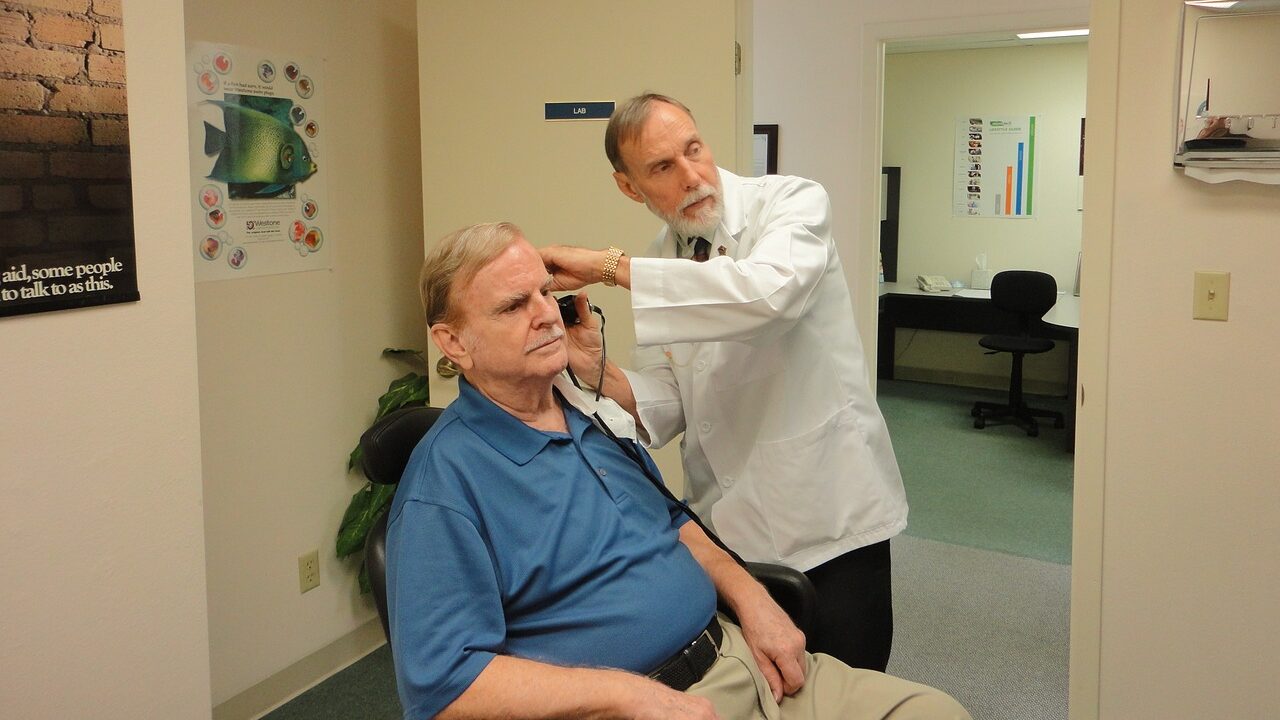
Subjective tinnitus will usually be diagnosed by a medical doctor rather than an audiologist, using a thorough case history and a discussion of symptoms. This means that patients effectively diagnose themselves, and consult with a doctor to confirm the diagnosis and discuss next steps. In the case of this type of tinnitus, next steps can include medication, or more serious interventions.
An otolaryngologist (ENT doctor) and audiologist will likely conduct several tests following a patient’s medical history intake, to determine the type of tinnitus that is present, the severity of the condition, and the type of sound being heard. Standard tests include:
- Otoscopy
- In otoscopy, a small magnified light is placed in the ear canal to visualize the ear canal and ear drum to ensure that all structures are intact and healthy in appearance. This can help identify the root cause of the condition.
- Tympanometry
- This immittance test evaluates the mobility of the middle ear system, including the ossicles (small middle ear bones) to rule out middle ear disorders that may cause conductive hearing loss.
- Acoustic reflex testing
- This immittance test evaluates the acoustic reflex. During the test, the acoustic reflex’s response to loud noises and their interactions with the auditory system. This is a helpful tool in ruling out retro-cochlear pathologies, such as acoustic neuroma.
- Sound booth audiometry
- During this test, headphones or earphones are placed in/on the patient’s ears. Pure tones (in the form of beeps) are played at different sound levels and the patient is directed to press a button or raise their hand. The practitioner is working to find the softest volume the patient can hear and respond to, or their “threshold.” The threshold will then determine the level of hearing loss an individual is experiencing (if any).
- Pitch matching
- Pitch matching is a test where the practitioner presents tones or sounds to find a similar sound in pitch to the patient’s tinnitus. This will help determine the sounds a patient is hearing.
- Loudness matching
- Using the matched pitch identified in the previous test, the practitioner will play that sound at different volumes to identify the loudness of tinnitus in question. These two tests help tinnitus patients develop quantifiable data for their tinnitus, which can help create a sense of control.
- Residual inhibition testing
- Masking sounds or white noise is played at a volume loud enough to cover up the patient’s tinnitus. The sound is played for approximately 1 minute and stopped. The timer is started, and the patient is asked to alert the practitioner when they begin to hear tinnitus again after the noise has ended. The test can be helpful to determine what type of sound therapy is best for a tinnitus patient.
I Have Been Properly Diagnosed With Tinnitus. What Are My Treatment Options?
Tinnitus treatment is often considered more similar to management than treatment, as interventions outside of treating underlying causes typically include the following:
- Hearing Aids
- To correct underlying hearing loss, hearing aids can restore auditory connections to the brain. Aids can also be used to deliver sound therapy and help lessen the perception of tinnitus.
- TRT
- Tinnitus Retraining Therapy (TRT) is a combination of counseling and sound therapy, and is useful to both mask tinnitus sounds, and improve mental and emotional responses to symptoms.
- CBT
- Cognitive Behavioral Therapy (CBT) is a mental health intervention that can be useful for people with tinnitus, as it helps improve mental and emotional responses to the onset of tinnitus, or when encountering triggers to make tinnitus worse.
- Sound Therapy
- Sound therapy is a type of therapy that is used to essentially mask the sounds of tinnitus, and thereby decrease the perception of those sounds and soothe some of the irritation and frustration that can accompany symptoms of tinnitus.
Finding the tinnitus treatment that is right for you means first finding the underlying cause, if one exists, addressing that cause, and then managing symptoms. With qualified audiologists, time, and consistency, tinnitus patients report improvements to their condition and overall state.
Next Step: Book Free Consultation
- 75% of patients reduced their tinnitus within three months after following our recommendations.
- "I feel like Treble Health literally gave me my life back." - Randy S. (verified customer)
- Join thousands of people who have reduced their tinnitus after scheduling a free consultation.






